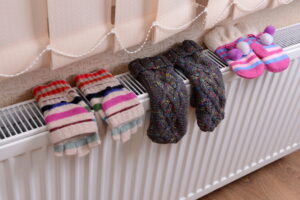 Most homes in our area are powered by electricity. With that, most of those homes have heating systems that are also powered by electricity. As the power grid gets upgraded and more sustainable sources of energy start pouring in, we’re likely to see our electric heating systems increase in popularity over the coming years. This is a good thing!
Most homes in our area are powered by electricity. With that, most of those homes have heating systems that are also powered by electricity. As the power grid gets upgraded and more sustainable sources of energy start pouring in, we’re likely to see our electric heating systems increase in popularity over the coming years. This is a good thing!
However, it’s important that you get your electrical heating system, whether it’s a heat pump or an electric furnace, repaired by a professional technician so you’re in good shape for the future. Heating repair in Boerne can be expensive when homeowners try to fix things themselves or start calling amateurs that live down the street.
Our team specializes in the repair of these kinds of systems, and we can help diagnose the problem starting today! Let’s talk about some common electric heating system issues that you might encounter.

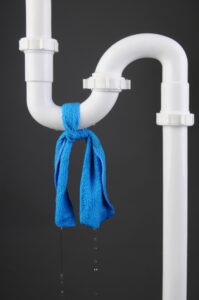 This is a complicated question, and one that we’d like to spend this blog post talking about. There’s no perfect answer, and it’s important that we’re honest with you as your go-to local professional for any questions that pertain to
This is a complicated question, and one that we’d like to spend this blog post talking about. There’s no perfect answer, and it’s important that we’re honest with you as your go-to local professional for any questions that pertain to  Leaks are brutal when they occur. We’ve all been there when a leak has caused a complete disruption in our lives and we start furiously searching online for what to do. The stress and commotion of having a leak in your home can be enough to ruin anyone’s day, which is why we’d like to shed some light on this type of situation.
Leaks are brutal when they occur. We’ve all been there when a leak has caused a complete disruption in our lives and we start furiously searching online for what to do. The stress and commotion of having a leak in your home can be enough to ruin anyone’s day, which is why we’d like to shed some light on this type of situation.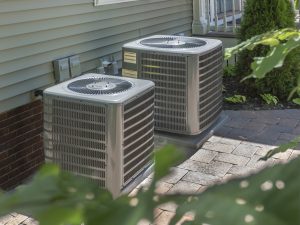 As a responsible homeowner, you should never forget about your air conditioner. Maintenance on a yearly basis can be vital to keeping your system running and timely repairs are an absolute necessity unless you want your system to break down early.
As a responsible homeowner, you should never forget about your air conditioner. Maintenance on a yearly basis can be vital to keeping your system running and timely repairs are an absolute necessity unless you want your system to break down early. Do you know whether the indoor air quality in your home is safe for you? Many people are aware of all the pollutants in the air outside and how harmful they can be to your health. You might be surprised to learn that indoor pollutant levels can be significantly higher than you might think.
Do you know whether the indoor air quality in your home is safe for you? Many people are aware of all the pollutants in the air outside and how harmful they can be to your health. You might be surprised to learn that indoor pollutant levels can be significantly higher than you might think. The answer to this question is complicated. If you had your air conditioner installed by a team of qualified professionals, like the ones at our company, then the answer is absolutely. Proper air conditioning sizing, or more commonly referred to as load calculation, is one of the most important aspects of having an AC installed. If an amateur or a team decides to go ahead with the installation and doesn’t size the system properly, there could be some huge repercussions.
The answer to this question is complicated. If you had your air conditioner installed by a team of qualified professionals, like the ones at our company, then the answer is absolutely. Proper air conditioning sizing, or more commonly referred to as load calculation, is one of the most important aspects of having an AC installed. If an amateur or a team decides to go ahead with the installation and doesn’t size the system properly, there could be some huge repercussions. It’s been a hard year, and we’ve been making sure to ask all of our beloved customers about how they’re doing. We view everyone in this community as friends and neighbors, so don’t hesitate to strike up a conversation with one of our staff members and tell us how you’re doing.
It’s been a hard year, and we’ve been making sure to ask all of our beloved customers about how they’re doing. We view everyone in this community as friends and neighbors, so don’t hesitate to strike up a conversation with one of our staff members and tell us how you’re doing.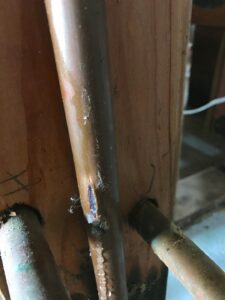 Over years, sometimes even decades, a plumbing system can go through the ringer. While we might only see what’s on the surface when we use our kitchen sink and our bathtub, but the pipes underneath you might be suffering until one day they have a catastrophic failure. These kinds of plumbing emergencies are why our company exists.
Over years, sometimes even decades, a plumbing system can go through the ringer. While we might only see what’s on the surface when we use our kitchen sink and our bathtub, but the pipes underneath you might be suffering until one day they have a catastrophic failure. These kinds of plumbing emergencies are why our company exists.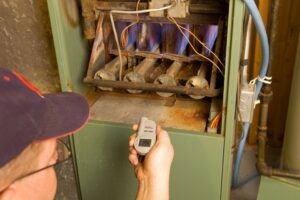 How big is your heater? No, hold on—don’t just go measure it and report back to us how many square feet it takes up. While that definitely matters in the measurement of your heater, it’s not the whole story. Heaters need to be able to adequately heat an entire home, and that means a specific model should have been installed in your home that’s able to heat the volume of air inside. This measurement of volume before setting a heater up is known as load calculation.
How big is your heater? No, hold on—don’t just go measure it and report back to us how many square feet it takes up. While that definitely matters in the measurement of your heater, it’s not the whole story. Heaters need to be able to adequately heat an entire home, and that means a specific model should have been installed in your home that’s able to heat the volume of air inside. This measurement of volume before setting a heater up is known as load calculation. Howdy folks! You should know by now that we’re all about savings on this blog. Whether it’s talking about a new heating system that could save you money on your heating bill, or ways to save electricity, our team is always ahead of the curve. This is especially important for homeowners that want a new HVAC system, whether it’s a heater or an air conditioner.
Howdy folks! You should know by now that we’re all about savings on this blog. Whether it’s talking about a new heating system that could save you money on your heating bill, or ways to save electricity, our team is always ahead of the curve. This is especially important for homeowners that want a new HVAC system, whether it’s a heater or an air conditioner.













